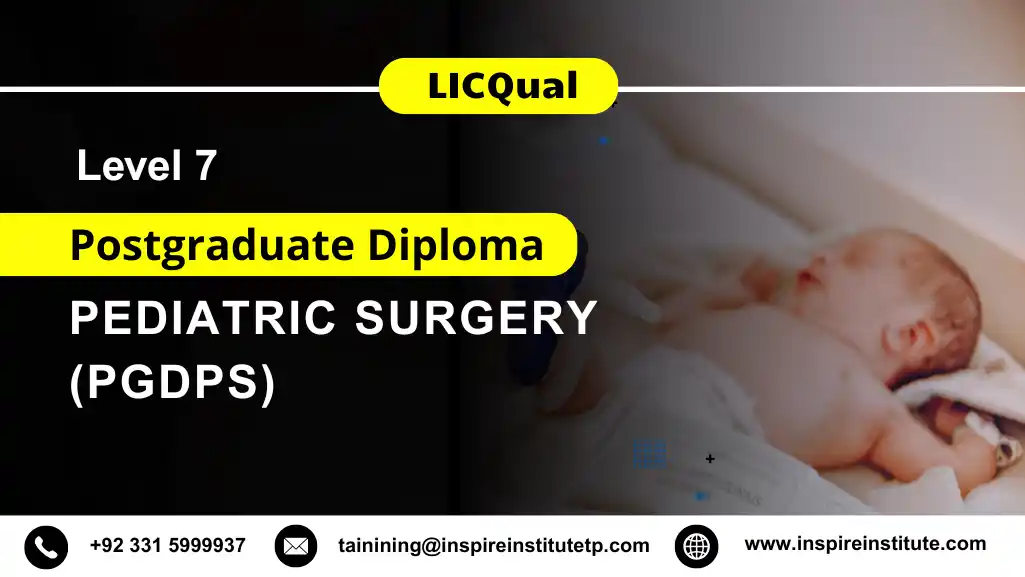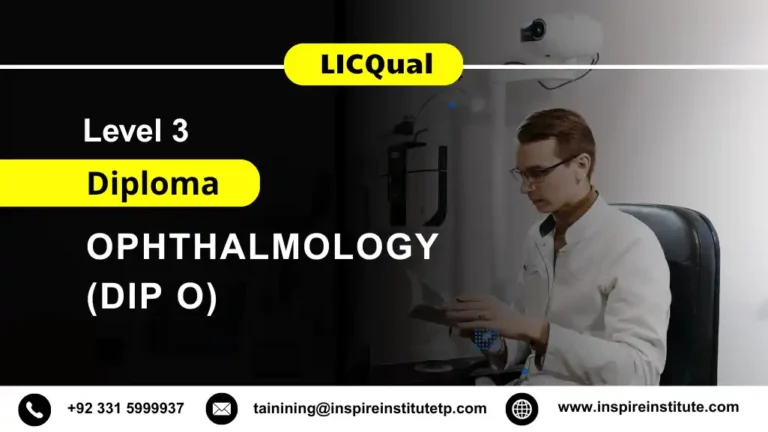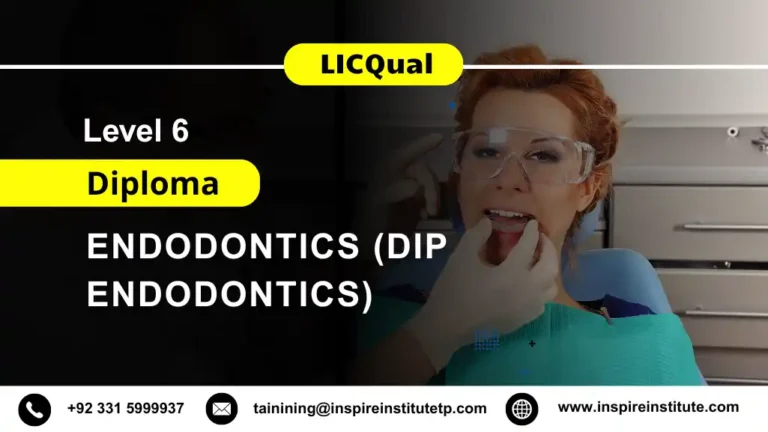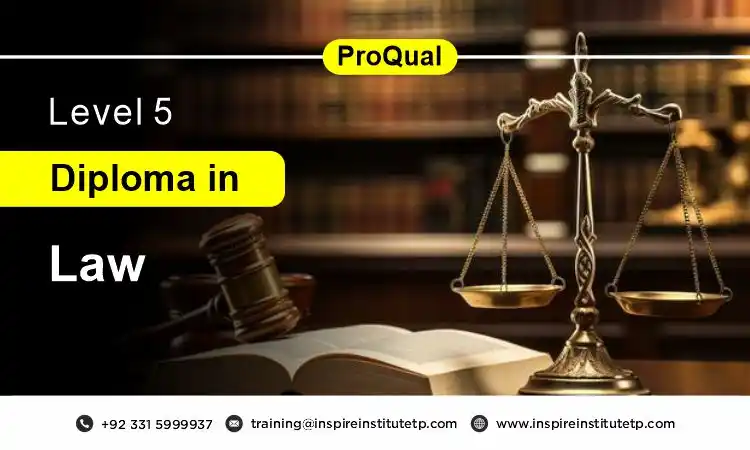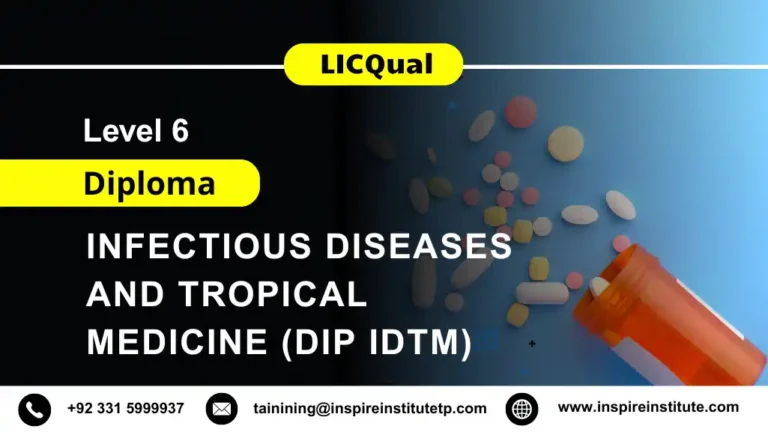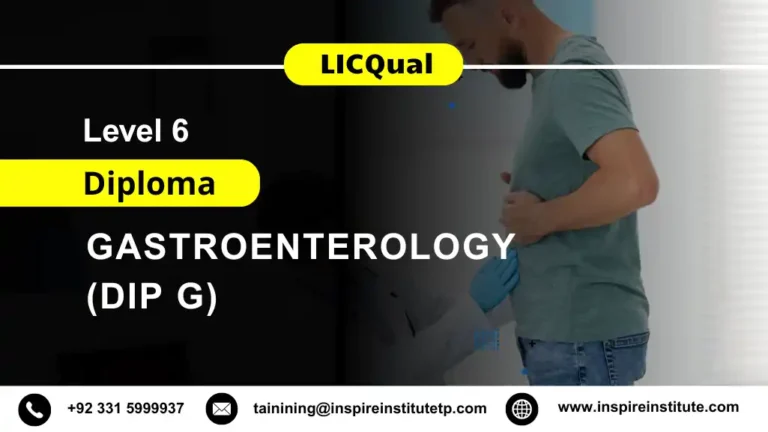LICQual Level 7 Postgraduate Diploma in Pediatric Surgery (PgDPS)
The LICQual Level 7 Postgraduate Diploma in Pediatric Surgery (PgDPS) is a UK-accredited qualification designed to equip medical professionals with advanced surgical knowledge and practical expertise in paediatric healthcare. In today’s medical landscape, paediatric surgery stands as one of the most vital specialties, requiring precision, compassion, and a deep understanding of child physiology. This comprehensive postgraduate programme provides a solid foundation for doctors, surgeons, and healthcare practitioners aiming to enhance their competencies in diagnosing, managing, and performing surgical procedures for infants, children, and adolescents.
The LICQual Level 7 Diploma in Pediatric Surgery bridges the gap between theoretical excellence and clinical practice. Learners will explore the anatomy, physiology, and pathology of the paediatric population while developing advanced diagnostic and operative skills.
The course Pediatric is structured to cover essential areas such as neonatal surgery, congenital anomalies, paediatric trauma management, and minimally invasive surgical techniques. Through evidence-based modules, participants gain the capability to deliver safe, effective, and ethical paediatric surgical care in both public and private healthcare settings.
This postgraduate diploma in pediatric surgery promotes hands-on learning through case studies, research-based assignments, and practical clinical simulations. Learners will develop the ability to assess paediatric patients holistically, plan individualized surgical interventions, and manage perioperative care effectively. The course also emphasizes post-surgical rehabilitation and family-centred care, ensuring learners are well-prepared for real-world paediatric challenges.
Why Choose this Qualification
The LICQual Level 7 Postgraduate Diploma in Pediatric Surgery (PgDPS) offers an advanced academic and clinical pathway for healthcare professionals aspiring to excel in paediatric surgical practice. This UK-accredited qualification combines theoretical understanding with hands-on surgical training, preparing learners to manage complex paediatric cases with confidence and precision. Designed for surgeons, physicians, and healthcare specialists, the programme ensures participants gain a deep understanding of paediatric anatomy, pathology, and operative techniques through evidence-based learning.
Key Reasons to Choose this Qualification
1. Globally Recognised UK Qualification
- Earn a prestigious UK-accredited credential that demonstrates advanced competence in paediatric surgery.
- Achieve global recognition aligned with international healthcare and surgical standards.
- Strengthen your professional credibility and eligibility for senior roles in paediatric healthcare institutions.
- Build a strong academic foundation for further postgraduate studies or fellowship opportunities.
- Enhance your professional profile for national and international medical licensing and registration.
2. Comprehensive Surgical Knowledge
- Gain in-depth understanding of paediatric anatomy, physiology, and surgical pathology.
- Study a wide range of topics including neonatal surgery, congenital anomalies, and paediatric trauma.
- Learn evidence-based approaches to preoperative and postoperative care.
- Understand the latest advancements in minimally invasive paediatric surgical techniques.
- Develop decision-making skills essential for complex paediatric and neonatal cases.
3. Practical and Clinical Application
- Engage in clinical simulations, case studies, and scenario-based assessments.
- Practice hands-on skills in paediatric surgical planning and intervention strategies.
- Learn to assess surgical risks, manage complications, and ensure optimal patient safety.
- Apply clinical knowledge to real-world paediatric healthcare settings.
- Gain the ability to provide high-quality, ethical, and family-centred care.
4. Evidence-Based and Research-Oriented Learning
- Develop the ability to interpret and apply current surgical research and clinical studies.
- Learn research methodologies specific to paediatric surgery and child health.
- Integrate data-driven insights into clinical practice for improved outcomes.
- Stay updated with innovations in paediatric laparoscopic and robotic surgery.
- Enhance your academic writing and publication potential through structured assignments.
5. Flexible Learning Pathway for Professionals
- Benefit from a fully assignment-based structure designed for working professionals.
- Study at your own pace without compromising clinical or professional responsibilities.
- Access high-quality digital resources and interactive learning platforms.
- Receive mentorship and academic guidance from industry experts.
- Balance your medical career and postgraduate education seamlessly.
6. Career Advancement Opportunities
- Open doors to senior clinical, academic, and leadership roles in paediatric surgery.
- Qualify for consultancy or specialist positions in hospitals and surgical units.
- Strengthen eligibility for global medical employment and advanced fellowship training.
- Build a network with international paediatric surgeons and healthcare professionals.
- Increase competitiveness for research, teaching, and hospital management roles.
7. Focus on Ethical and Patient-Centred Care
- Learn the ethical principles governing paediatric surgical practice.
- Develop compassionate approaches to patient and family communication.
- Understand cultural, psychological, and developmental aspects influencing paediatric care.
- Prioritise safety, dignity, and comfort in every surgical procedure.
- Promote sustainable and patient-centred paediatric healthcare systems.
8. Continuous Professional Development
- Engage in lifelong learning and reflective clinical practice.
- Enhance leadership, teamwork, and communication skills in multidisciplinary environments.
- Stay abreast of technological and procedural advancements in paediatric surgery.
- Participate in peer discussions, research collaborations, and global medical forums.
- Foster continuous improvement and excellence in paediatric surgical care delivery.
The LICQual Level 7 Postgraduate Diploma in Pediatric Surgery (PgDPS) is an investment in both professional excellence and global recognition. This qualification empowers learners to master advanced surgical skills, embrace ethical clinical practices, and lead innovation in paediatric healthcare. Whether aspiring to advance in hospital practice, research, or academia, this diploma equips professionals with the knowledge, confidence, and international credibility to make a lasting impact in the field of paediatric surgery.eld of urology. It offers a measurable impact on professional development, clinical competence, and healthcare excellence globally.
Course Overview
LICQual UK Awarding Body
Average Completion Time:
6-24 Months
Study Units: 6 Units
Evidence & Assignment Based
Mandatory Units
Who Should Take This Course
The LICQual Level 7 Postgraduate Diploma in Pediatric Surgery (PgDPS) is specifically designed for healthcare professionals who aspire to advance their knowledge, technical proficiency, and clinical expertise in paediatric surgical care. This UK-accredited qualification provides an ideal platform for practitioners seeking to enhance their surgical decision-making, leadership, and evidence-based practice skills in managing paediatric patients. Whether you are a qualified surgeon aiming to specialise in paediatric surgery or a medical practitioner involved in paediatric healthcare, this programme equips you with the knowledge and hands-on experience needed to excel in one of the most demanding and rewarding areas of medicine.
This Course is Suitable For
1. Medical Doctors and Surgeons
- Ideal for qualified medical doctors seeking to specialise in paediatric and neonatal surgery.
- Enhances understanding of congenital, developmental, and acquired surgical conditions in children.
- Strengthens surgical planning and patient management skills through case-based learning.
- Equips learners with the ability to perform minor and complex paediatric procedures safely.
- Provides international recognition for doctors aspiring to advance into paediatric consultant roles.
2. Paediatricians and Child Health Specialists
- Designed for paediatricians aiming to expand their expertise into surgical and perioperative care.
- Develops proficiency in recognising surgical conditions and coordinating patient referrals.
- Encourages collaboration between surgical and medical teams Pediatric for holistic child care.
- Improves knowledge of paediatric emergency and trauma management protocols.
- Enhances ability to support families and patients through surgical decision-making processes.
3. General Surgeons and Surgical Residents
- Suitable for general surgeons planning to transition into paediatric surgical specialisation.
- Strengthens theoretical understanding of paediatric anatomy and operative techniques.
- Offers exposure to advanced paediatric laparoscopic and minimally invasive surgical methods.
- Builds critical evaluation skills for paediatric case assessments and outcomes analysis.
- Provides a recognised credential supporting progression toward paediatric fellowships.
4. Anaesthetists and Operating Theatre Professionals
- Designed for anaesthetists involved in paediatric perioperative and critical care.
- Enhances understanding of child-specific anaesthetic protocols and recovery procedures.
- Develops multidisciplinary communication and teamwork in paediatric surgical settings.
- Provides insights into pre- and post-operative pain management for paediatric patients.
- Promotes safer, evidence-based approaches to paediatric surgical anaesthesia.
5. Nurses and Allied Healthcare Practitioners
- Suitable for nurses and allied professionals working in paediatric surgery, intensive care, or recovery units.
- Builds competencies in surgical preparation, wound management, and patient monitoring.
- Enhances ability to provide emotional and educational support to paediatric patients and families.
- Promotes effective interdisciplinary collaboration within surgical teams.
- Encourages leadership and professional growth within paediatric healthcare environments.
6. Medical Educators and Clinical Trainers
- Beneficial for professionals involved in training and mentoring paediatric healthcare teams.
- Develops the ability to design and deliver educational content in surgical disciplines.
- Enhances teaching effectiveness through evidence-based learning approaches.
- Encourages integration of modern surgical research and case studies into curricula.
- Strengthens capacity to assess, evaluate, and guide future paediatric specialists.
7. Healthcare Administrators and Clinical Managers
- Ideal for administrators overseeing paediatric surgical departments or hospital units.
- Builds understanding of paediatric surgical workflows and patient safety standards.
- Develops skills in quality assurance, clinical governance, and healthcare compliance.
- Promotes data-driven decision-making for resource management and service optimisation.
- Equips leaders to implement strategies that improve paediatric surgical care delivery.
8. International Medical Graduates and Aspiring Specialists
- Suitable for internationally trained doctors seeking UK-accredited postgraduate credentials.
- Assists professionals in meeting global competency benchmarks in paediatric surgery.
- Enhances career mobility and eligibility for advanced fellowships or specialist registration.
- Provides comprehensive insight into global paediatric surgical best practices.
- Builds confidence to work within diverse healthcare systems and paediatric care models.
Conclusion
The LICQual Level 7 Postgraduate Diploma in Pediatric Surgery (PgDPS) is ideal for healthcare professionals committed to elevating their clinical and surgical expertise in paediatric healthcare. It offers a globally recognised qualification that fosters professional growth, surgical excellence, and ethical practice in child health. Whether you are a clinician, educator, or medical specialist, this diploma provides the tools, knowledge, and credibility to advance your career and make a lasting impact in paediatric surgery worldwide.
Course Benefits
The LICQual Level 7 Postgraduate Diploma in Pediatric Surgery (PgDPS) is a prestigious UK-accredited qualification designed for medical professionals, paediatric surgeons, and healthcare practitioners aiming to advance their expertise in surgical care for infants, children, and adolescents. This Pediatric comprehensive, assignment-based diploma integrates advanced theoretical foundations with practical surgical applications, empowering learners to develop, implement, and evaluate effective paediatric surgical strategies. Through evidence-based learning and flexible study pathways, this qualification prepares professionals to deliver high-quality, safe, and ethical paediatric surgical care, enhance patient outcomes, and contribute to innovations in modern paediatric surgery practice.
Key Benefits of the Course
- Specialist Knowledge:
Gain in-depth understanding of paediatric anatomy, physiology, and surgical pathology. Learners explore specialised areas such as neonatal surgery, congenital anomalies, paediatric oncology, and minimally invasive techniques. The course also covers perioperative care, trauma management, and paediatric surgical pharmacology, providing learners with comprehensive expertise in managing complex surgical cases with precision and compassion. - Practical Application:
Develop hands-on surgical skills through case studies, clinical simulations, and research-based assignments. Learners enhance their ability to assess, plan, and perform paediatric surgical procedures effectively. The programme trains professionals to collaborate with multidisciplinary teams, apply advanced diagnostic methods, and implement evidence-based surgical interventions to achieve optimal patient outcomes. - Recognised Qualification:
Earn a UK-accredited Postgraduate Diploma in Pediatric Surgery (PgDPS) that validates clinical excellence and advanced surgical competence. This internationally recognised qualification ensures alignment with global paediatric healthcare standards, enhancing credibility and employability in hospitals, specialised surgical centres, academic institutions, and global healthcare organisations. - Flexible Learning Pathway:
Designed for working medical professionals, the assignment-based study model allows learners to progress without interrupting their clinical duties. Participants benefit from digital learning resources, structured mentorship, and academic flexibility, ensuring a balanced integration of theoretical learning and practical experience tailored to professional needs. - Evidence-Based Training:
Engage with the latest paediatric surgical research, global clinical guidelines, and technological innovations. The course promotes the use of evidence-based surgical techniques, risk assessment models, and postoperative management strategies. Learners gain the analytical skills to evaluate surgical data critically and apply validated, research-driven approaches that improve clinical outcomes. - Career Development:
Expand your career prospects in paediatric hospitals, surgical units, research centres, and academic institutions. Graduates may pursue roles such as Paediatric Surgeon, Clinical Educator, Surgical Consultant, or Research Specialist. This qualification also provides a foundation for further postgraduate research, subspecialty fellowships, and leadership positions in paediatric healthcare. - Enhanced Patient Impact:
Deliver safe, compassionate, and family-centred surgical care that prioritises child health and wellbeing. The course equips learners to manage congenital and acquired conditions effectively while promoting holistic recovery. Graduates are trained to enhance the quality of life for paediatric patients through sustainable and ethical surgical practices. - Professional Growth:
Strengthen clinical reasoning, leadership, communication, and decision-making skills essential for paediatric surgical excellence. The Postgraduate Diploma in Pediatric Surgery encourages reflective practice, interdisciplinary teamwork, and continuous professional development. Graduates emerge as competent, confident, and globally recognised specialists ready to advance paediatric surgical standards worldwide.
The LICQual Level 7 Postgraduate Diploma in Pediatric Surgery (PgDPS) empowers healthcare professionals with advanced surgical expertise, academic excellence, and internationally recognised credentials. This qualification enables graduates to lead advancements in paediatric surgical care, contribute to research and innovation, and make a lasting difference in the health and lives of children across the globe..
Eligibility Criteria
The LICQual Level 7 Postgraduate Diploma in Pediatric Surgery (PgDPS) is a prestigious UK-accredited qualification specifically designed for medical professionals, paediatric surgeons, and healthcare practitioners aiming to advance their clinical and surgical expertise in paediatric care. This comprehensive, assignment-based diploma integrates advanced theoretical principles with evidence-based surgical practice, enabling learners to plan, perform, and evaluate paediatric surgical interventions effectively. It provides a robust foundation for professionals seeking to deliver high-quality surgical care, promote child health, and contribute to innovation within the field of paediatric surgery.
Educational Background:
Applicants should hold a recognised qualification in medicine, paediatric surgery, healthcare, or a related surgical or clinical field. A Level 6 diploma or equivalent qualification in medical sciences, surgery, or healthcare management may also be accepted. Candidates with international medical degrees in paediatrics, general surgery, or allied health disciplines will be assessed individually to determine equivalence with UK academic standards. The programme welcomes professionals committed to advancing their surgical expertise and academic excellence in paediatric healthcare.
Professional Experience:
A minimum of one to two years of experience in surgery, paediatric medicine, or clinical healthcare is highly recommended. Experience in hospital-based surgical care, paediatric units, or medical research offers a strong foundation for success in this course. However, motivated applicants with a genuine interest in paediatric surgical care, clinical research, and advanced surgical practices are encouraged to apply, even if they possess limited direct surgical experience.
Age Requirement:
Applicants must be at least 18 years old at the time of enrolment. This ensures learners possess the professional maturity, ethical understanding, and decision-making ability necessary for advanced academic and clinical engagement in paediatric surgical training.
Language Proficiency:
As the LICQual Level 7 Postgraduate Diploma in Pediatric Surgery is delivered entirely in English, learners must demonstrate strong proficiency in reading, writing, listening, and communication. Non-native English speakers are advised to have a minimum IELTS score of 6.0 or an equivalent qualification to ensure successful participation in written assignments, research discussions, and assessments.
Technical Requirements:
Learners must have access to a computer or laptop with a reliable internet connection to participate in online learning activities, access digital study materials, and submit assignments. Basic computer literacy, including skills in research, academic writing, and the use of digital communication tools, is essential for effective engagement and academic performance in the programme.
Required Documents:
Applicants are required to submit the following documents during registration:
A valid ID card or passport for identity verification.
Academic transcripts or certificates of previous qualifications (medicine, healthcare, or related fields).
Proof of professional experience in surgery, paediatrics, or healthcare practice (if applicable).
Evidence of English language proficiency (if English is not the applicant’s first language).
The LICQual Level 7 Postgraduate Diploma in Pediatric Surgery (PgDPS) provides an ideal pathway for medical professionals seeking to expand their surgical competence, enhance patient outcomes, and gain an internationally recognised credential in paediatric surgical excellence.
The Qualification Process
LICQual Level 7 Postgraduate Diploma in Pediatric Surgery (PgDPS) follows a structured pathway to ensure learners gain comprehensive knowledge, practical skills, and professional competence in community oral healthcare.
Step 1: Self-Assessment
Learners review the entry requirements to confirm eligibility. Candidates with a background in dentistry, oral health, or public health are encouraged to apply.
Step 2: Registration
Complete the registration process by submitting required documents such as proof of qualifications, a valid ID, and payment of enrollment fees.
Step 3: Induction
An induction session is conducted to:
- Verify learner eligibility and documentation.
- Introduce study materials, learning outcomes, and assessment procedures.
Step 4: Learning and Evidence Submission
Learners complete assignments, case studies, and practical exercises demonstrating competence in public health dentistry, community oral health assessment, preventive strategies, and program planning.
Step 5: Feedback and Revision
Assessors review submitted evidence and provide constructive feedback. Learners can revise and resubmit work to meet all required standards.
Step 6: Competence Validation
Final submissions are evaluated to confirm that learners have met all theoretical and practical learning outcomes.
Step 7: Internal Quality Assurance (IQA)
The IQA team reviews the assessment process to ensure accuracy, fairness, and compliance with international standards.
Step 8: External Verification (EQA)
External verifiers validate the authenticity and quality of learner achievements.
Step 9: Certification
Upon successful verification, learners are awarded LICQual Level 7 Postgraduate Diploma in Pediatric Surgery (PgDPS), demonstrating advanced proficiency in community oral healthcare and preparing them for professional growth in dental public health, preventive dentistry, and healthcare policy.

